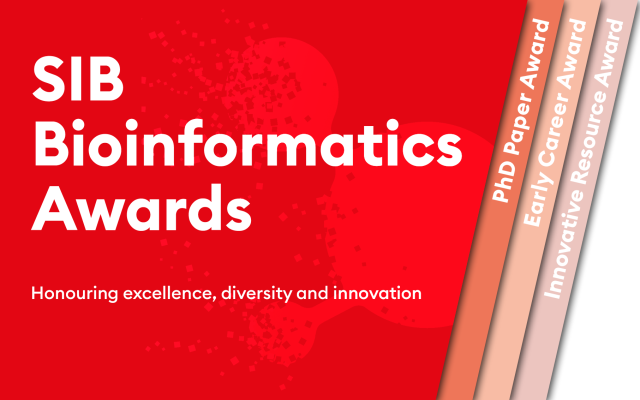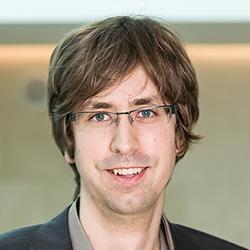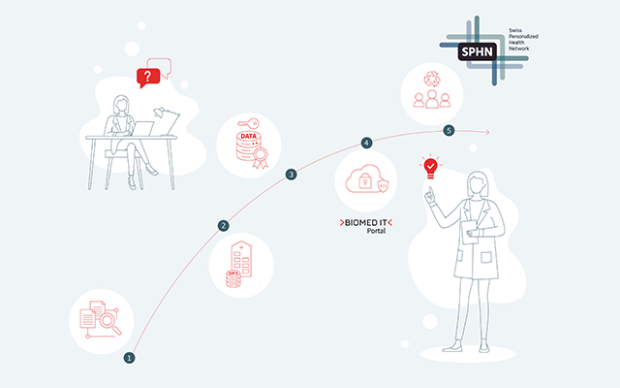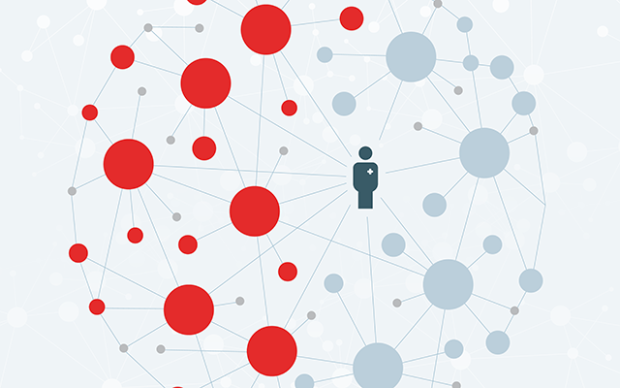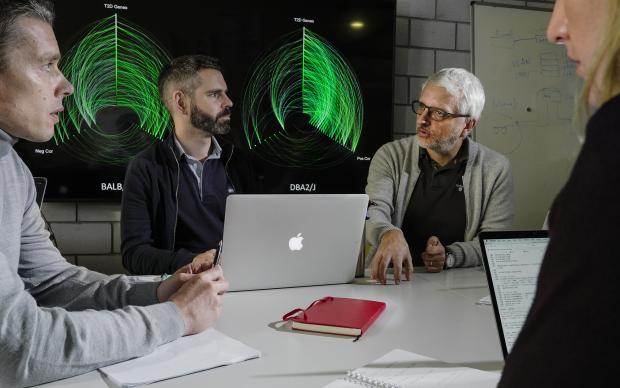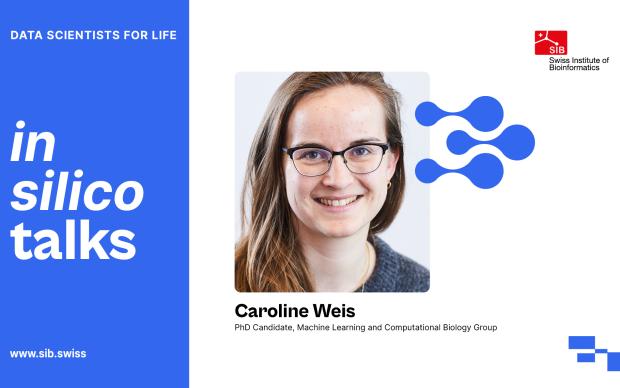Hannes Röst – Laureate of the 2015 SIB Best Swiss Bioinformatics Graduate Paper Award
Hannes received the award for his graduate paper “OpenSWATH enables automated, targeted analysis of data-independent acquisition MS data”, which was part of his doctoral studies in the team of Rudolf Aebersold at the Institute of Molecular Systems Biology at the ETH Zurich.
Four years later, Hannes has become an Assistant Professor at the University of Toronto in Canada. Together with his team, he develops open-source algorithms to analyse mass spectrometric data for integration with other omics data in the context of human health and disease. To learn more about the projects in Hannes’ group, visit the group’s webpage and follow @hroest on Twitter.
About the SIB Bioinformatics Awards and our interview series “Meet the past SIB Awards Laureates”
Started in 2008 as an initiative to distinguish young bioinformaticians in Switzerland, the SIB Bioinformatics Awards have gone a long way since: from a single national award to three different prizes today, honouring 1) international early career bioinformaticians (SIB Early Career Bioinformatician Award), 2) excellency within the Swiss PhD community (SIB Best Swiss Bioinformatics Graduate Paper Award) and 3) innovative bioinformatics resources (SIB Bioinformatics Resource Innovation Award). Throughout the years, 21 awards have been presented, with nine laureates recognized for their outstanding early career, ten Graduate students for their excellent publication and two bioinformatics resources for their innovative aspect.
In 2019, the SIB Bioinformatics Awards will be presented for the 10th time, providing a great occasion to reach out to past laureates and ask them where they are now in their career: this interview is part of a series inviting you to meet past SIB Bioinformatics Awards laureates.
At which point of your career were you when you received the SIB Award? How did it feel? What was the key interest of your research at this time point?
When I received the SIB Award, I had just finished my PhD and was moving to a post-doctoral position at the University of Stanford to apply my research in computational mass spectrometry to the field of personalized medicine. It was great to receive recognition for my research. The award was extremely helpful both to support my research and for subsequent grant applications.
What are your current research interests?
Bioinformatics, mass spectrometry, proteomics, metabolomics, personalized medicine
In your personal opinion, what is the single most fascinating discovery made possible by bioinformatics?
The ability to quantitatively measure molecular phenotypes using high-throughput technologies (genome, transcriptome, proteome, metabolome) has been driven by advances in technology and bioinformatics. These new data have revealed a systems-level picture of the molecular processes in the cell and allowed us to study individual patients at unprecedented depth.
Any words for the future generation of bioinformaticians?
Always collaborate, learn to communicate, and always attempt to understand the problems from a computational and a biological angle.


